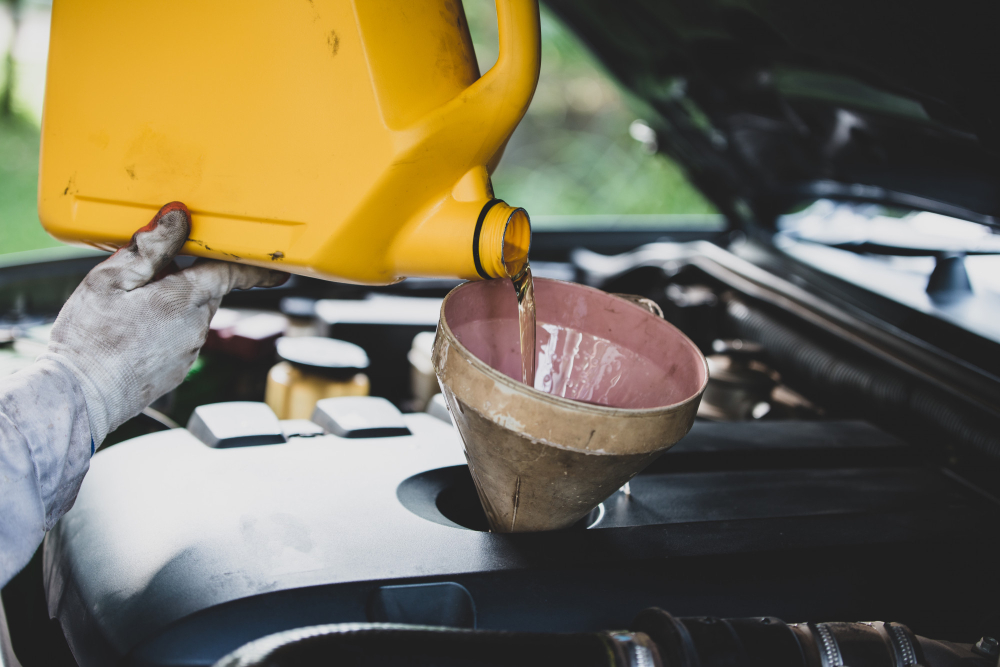Importance of Regular Oil Changes for Your Vehicle
Maintaining a vehicle in optimal condition requires dedication and attention to detail. Among all the essential maintenance tasks, regular oil change stand out as one of the most critical for ensuring the longevity and performance of your car. Whether you own a luxury vehicle or an everyday commuter, keeping up with oil changes can save you from costly repairs and keep your vehicle running smoothly.
What Happens When You Neglect Oil Changes?
Engine oil serves as the lifeblood of your vehicle’s engine, lubricating moving parts, minimizing friction, and preventing overheating. Over time, however, oil breaks down and accumulates debris, making it less effective. Neglecting regular oil changes can lead to several problems:
- Engine Wear and Tear: Without proper lubrication, metal parts within the engine grind against each other, causing premature wear and tear.
- Reduced Efficiency: Old oil thickens and loses its viscosity, making it harder for the engine to perform efficiently, resulting in poor fuel economy.
- Engine Overheating: Contaminated oil fails to dissipate heat properly, leading to overheating and potential engine failure.
- Costly Repairs: Ignoring oil changes can result in severe engine damage, requiring expensive repairs or even a complete engine replacement.
How Often Should You Change Your Oil?
While many factors influence the frequency of oil changes, such as the type of oil used and driving conditions, a general rule of thumb is to change your oil every 3,000 to 5,000 miles. Vehicles with modern engines and synthetic oils can often go up to 7,500 miles or more between oil changes. Always consult your vehicle’s owner’s manual for manufacturer recommendations.
Factors That Influence Oil Change Frequency
- Driving Habits: Frequent stop-and-go traffic, short trips, or aggressive driving can accelerate oil degradation.
- Climate: Extreme temperatures, whether hot or cold, can impact the lifespan of your engine oil.
- Type of Oil: Synthetic oils last longer than conventional oils and offer better protection for high-performance engines.
The Benefits of Regular Oil Changes
1. Improved Engine Performance
Fresh oil ensures that your engine runs smoothly by reducing friction and cleaning away dirt and sludge. This leads to quieter operation and enhanced performance.
2. Increased Fuel Efficiency
Clean oil reduces resistance within the engine, allowing it to operate more efficiently and consume less fuel. Over time, this can lead to significant savings at the pump.
3. Prolonged Engine Lifespan
By minimizing wear and tear on engine components, regular oil changes extend the overall lifespan of your vehicle, allowing you to enjoy reliable performance for years.
4. Environmental Benefits
Old oil can release harmful emissions. Replacing it regularly helps reduce your vehicle’s environmental footprint.
Signs Your Vehicle Needs an Oil Change
Even if you track mileage, your vehicle might show warning signs that an oil change is overdue. These include:
- Oil Change Light: Modern cars are equipped with sensors that alert you when oil levels are low.
- Engine Noise: Increased engine noise or knocking sounds may indicate insufficient lubrication.
- Dark or Dirty Oil: Fresh oil is amber-colored and transparent. If it appears dark and dirty, it’s time for a change.
- Exhaust Smoke: Excessive smoke from the exhaust can signal oil contamination or burning oil.
- Decreased Performance: A sluggish engine or reduced fuel efficiency could point to old oil that needs replacing.
How to Choose the Right Oil for Your Vehicle
Not all engine oils are created equal. Selecting the right oil depends on your vehicle type, engine specifications, and driving conditions. Here’s what to consider:
1. Conventional vs. Synthetic Oil
- Conventional Oil: Ideal for older vehicles and light-duty applications.
- Synthetic Oil: Offers superior performance, longevity, and protection in extreme conditions.
2. Viscosity Grade
Check your owner’s manual for the recommended viscosity grade, often expressed as 10W-30 or similar. This rating indicates how the oil performs at different temperatures.
3. Additives
Many oils contain additives to enhance performance, such as detergents to clean engine parts and antioxidants to prevent oil breakdown.
DIY Oil Change vs. Professional Service
While changing your oil at home might save money, a professional service offers several advantages:
- Proper Disposal: Professionals ensure old oil is disposed of safely and responsibly.
- Expert Inspection: Trained mechanics can identify other potential issues during the service.
- Convenience: A quick and hassle-free process ensures you’re back on the road in no time.
Final Thoughts: Make Oil Changes a Priority
Regular oil changes are an investment in your vehicle’s performance and longevity. Skipping this essential maintenance task might save time or money in the short term, but it could lead to costly consequences down the line. By staying proactive and adhering to a consistent oil change schedule, you can ensure your car remains reliable and efficient for years to come.
Also read : Top 10 Corporate Gift Trends In Dubai For Christmas













Post Comment